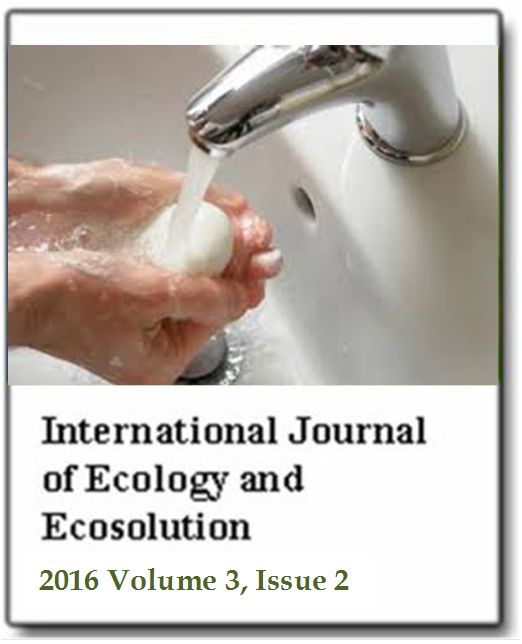Assessment of behavioural responses to environmental sanitation facilities in the core areas of developing countries: Case study of Ikorodu, Nigeria
Hafis O. BelloInternational Journal of Ecology and Ecosolution
Published: April 7 2016
Volume 3, Issue 2
Pages 12-20
Abstract
This study evaluated the sanitation facilities and services available in core city areas with an attempt to identify the different environmental sanitation behaviours emanating from the level of adequacies of these amenities. Ikorodu town in Lagos state was the focus of the study. Primary data collection was done through questionnaire administration and observations. Questionnaires were administered using the systematic random sampling technique whereby every tenth house within the central area of the town was selected for the study. A respondent was sampled in each of the selected buildings. The total of 218 houses were sampled altogether. Descriptive and inferential statistical tools were used for the study. The descriptive tools used include frequency tables, bar diagrams and line graphs while regression analysis and chi-square were used to make inferences. The regression analysis showed a significant relationship between the socio-economic variables and the duration of drainage clearance. The R2 value of 0.573 showed that the independent variables were able to explain 57.3% of the total variation in drainage clearance in the area. The study also showed a relationship between the education level of the respondents and the duration of waste storage before disposal. The study concluded that the poor environmental sanitation conditions noted in Ikorodu resulted from inadequate supply of amenities and resident’s response to the inadequacies.
Keywords: Environment, sanitation facilities, behavioral responses, developing countries, core city areas, human health, waste disposal.
Full Text PDF
